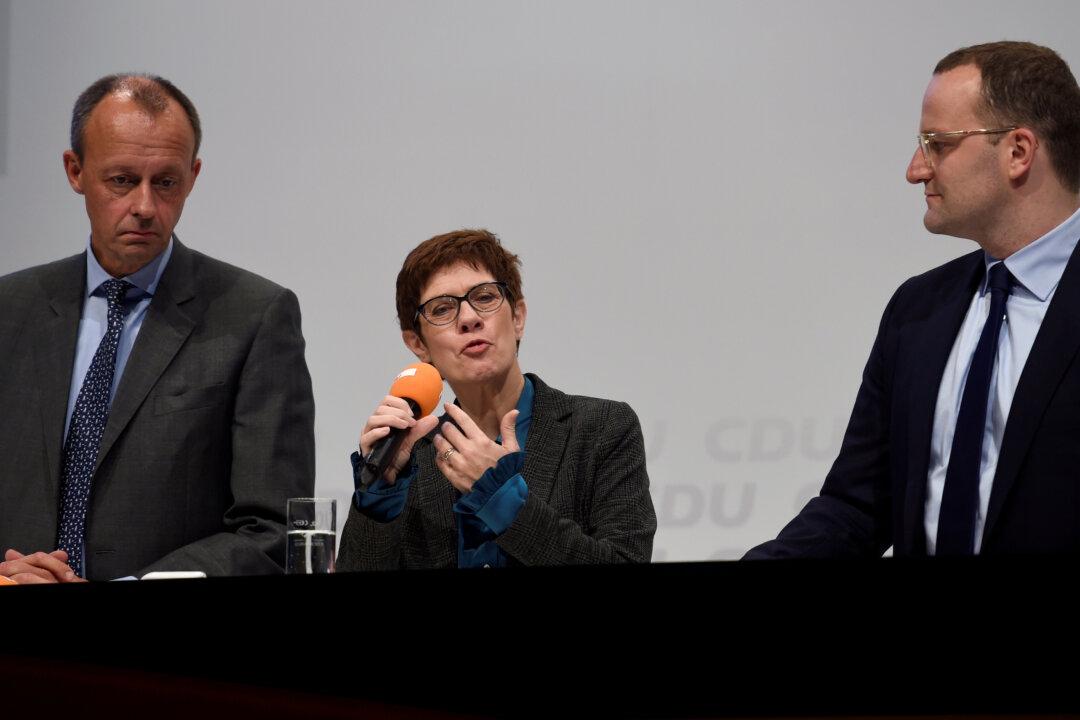Friedrich Merz, trailing in the race to succeed Chancellor Angela Merkel as leader of the Christian Democrats (CDU) party, has sparked controversy by questioning Germany’s constitutional guarantee of asylum.
“We must be prepared to discuss the constitutional right to asylum if we seriously want a European immigration and refugee policy,” Merz said at a campaign rally in the eastern state of Thuringia on Wednesday, Nov. 21, to applause from local party delegates.





